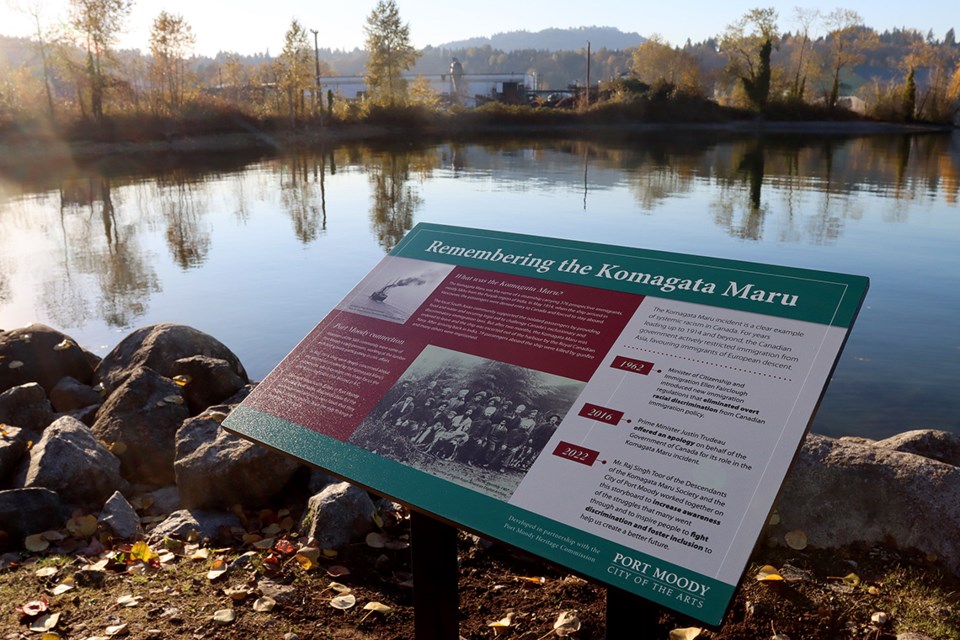A dark chapter of Canada’s past is now being memorialized in Port Moody with the unveiling Wednesday of a new interpretive sign at Rocky Point Park.
The sign tells the story of the Komagata Maru, a Japanese ship that sailed into Vancouver harbour on May 23, 1914, with 376 Sikh, Muslim and Hindu passengers from India seeking a better life in a new country.
But the ship wasn’t allowed to dock.
For two months its passengers were forbidden to disembark even as their food and water supplies diminished.
For 16 years, Raj Singh Toor, whose grandfather was aboard the Komagata Maru, has been working to bring the story of the ship and its passengers to light in hopes of healing wounds still felt deeply in the Indian community and fostering greater tolerance in their adopted country.
The sign in Port Moody is Toor’s latest accomplishment in his journey that includes apologies from the Canadian and British Columbia governments, as well as from the cities of Vancouver and New Westminster.
Toor has also sought interpretive signs and plaques in public spaces in those cities as well as Surrey, and the renaming of parks, streets and trails in communities far away from where the Komagata Maru anchored in limbo, like Winnipeg, Man., and Brampton, Ont.
Toor said the far-flung recognition of the Komagata Maru is testimony to the reach and contribution of Indian immigrants to Canada’s cultural and economic fabric since they first began arriving in the country in the early 1900s. Many went to work in the lumber mills and farm fields, gaining their foothold with tough, manual labour that others shunned.
“They’re hard working and honest,” Toor said. “They helped to build Canada.”
But their journey has often been fraught with discrimination.
When the Komagata Maru was ordered by authorities to return to India under the escort of a Canadian naval vessel, many of its passengers were sick and starving.
Upon their return to India, 20 were killed by British troops who regarded them as insurrectionists. Others, like Toor’s grandfather, were sent to jail where some became radicalized and eventually got involved in India’s fight for independence from Britain’s colonial rule that ultimately proved successful in 1947.
Toor said he hopes the new sign at Rocky Point Park, a stone’s throw from the site of the old Flavelle Cedar mill where ancestors and descendants from some of those aboard the Komagata Maru found work, will help educate the community about the heavy toll that can be exacted by intolerance and the benefits that can come from acceptance.
“We can’t undo the past, but we can move forward if we’re educated about the past,” Toor said. “We are all richer when ethnic communities can live together.”


